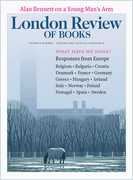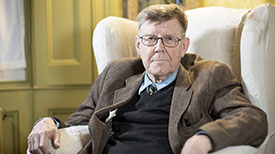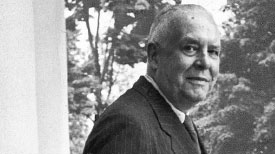Shelley’s Kind of Glee
‘There was not much comedy in Shelley’s life,’ Thomas Peacock remarked in his memoir, a sad thing to say; but the striking contrast between The Triumph of Life and most of Shelley’s work makes you realise that buoyant spirits are not far off in much of it. People were always struck by how young he seemed, and when critics like Eliot or Leavis ticked him off for adolescence or immaturity, it was a backhanded way of responding to the idea of youthfulness that they detected stirring in the poems. His opposition to tyranny was principled, but it was also the reaction of a child whom the grown-ups are always getting at: he really needed tyrants in his life, as Peacock perceptively observed. His dismal father, Sir Timothy, was the archetype, succeeded by schoolmasters, Eldon the Lord Chancellor, Wordsworth, Jupiter, God. More
Diary for 2018
2 October. I suppose Allelujah!, while not unambiguous, is the closest I’ve ever got to a political play. Some of this is fortuitous. I have always thought that there is an element of prophecy in plays: write it and it happens. With this play it’s been almost embarrassing. Lest I be thought to be trailing behind the facts I should say that Valentine’s trouble over his visa was written months before the Windrush business and indeed the various scandals in NHS hospitals. I had originally intended Valentine to be an older doctor, brought out of retirement by the hospital because of a shortage of staff. In which case to refuse him a visa would have seemed even more shocking, though no more so than the treatment meted out to the long-established immigrants who were so callously singled out. More
LATEST AUDIO AND VIDEO
AUDIO Diary for 2018
Alan Bennett puts on a new play and finds himself on someone’s arm. Listen »
AUDIO Uneven Stevens
Seamus Perry and Mark Ford on the life and poetry of Wallace Stevens. Listen »






